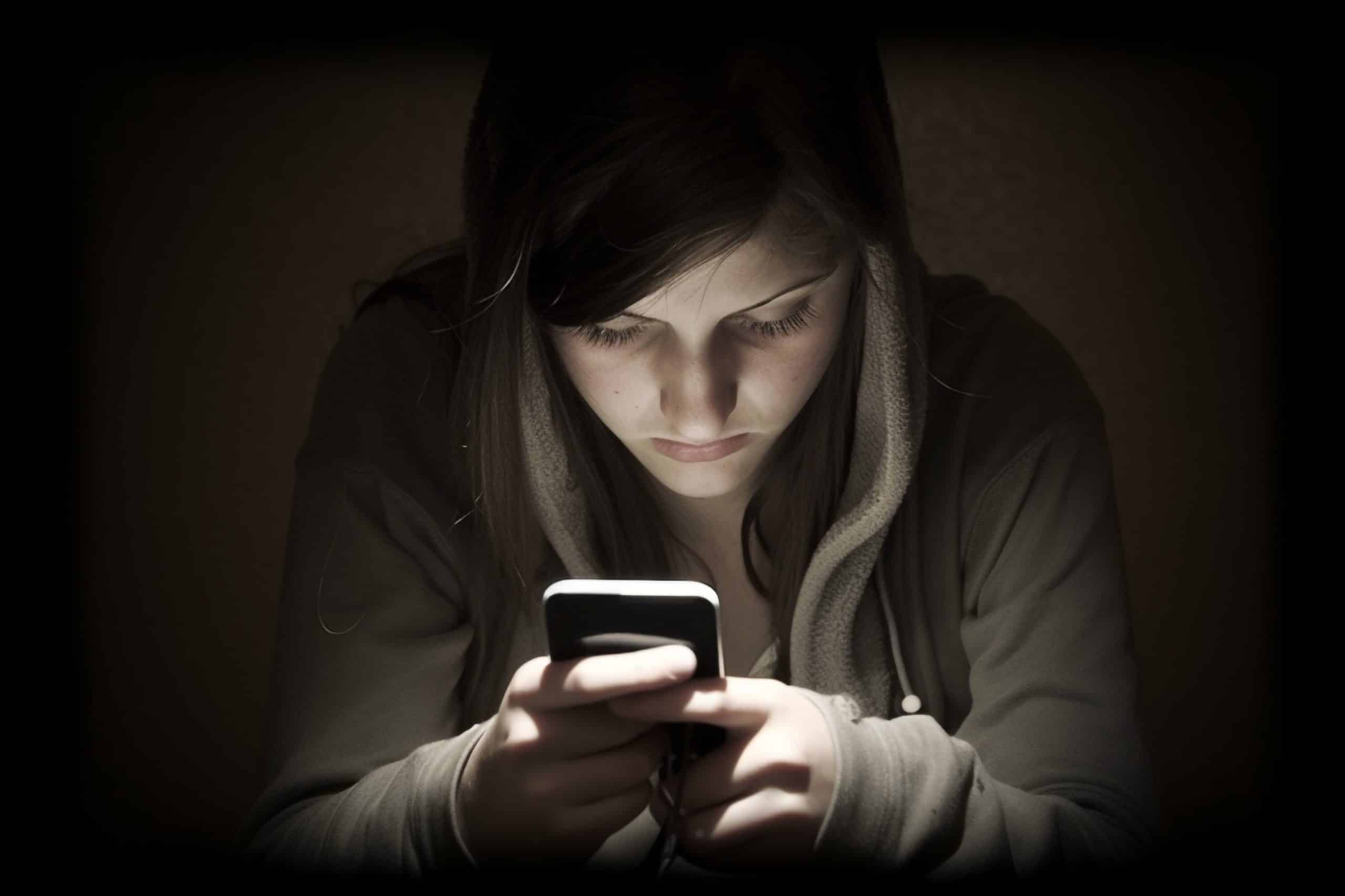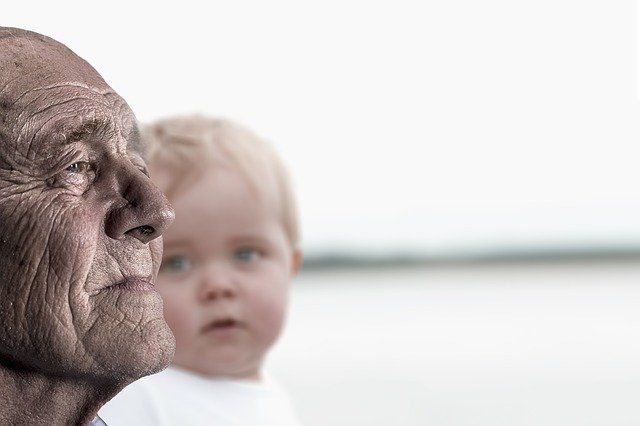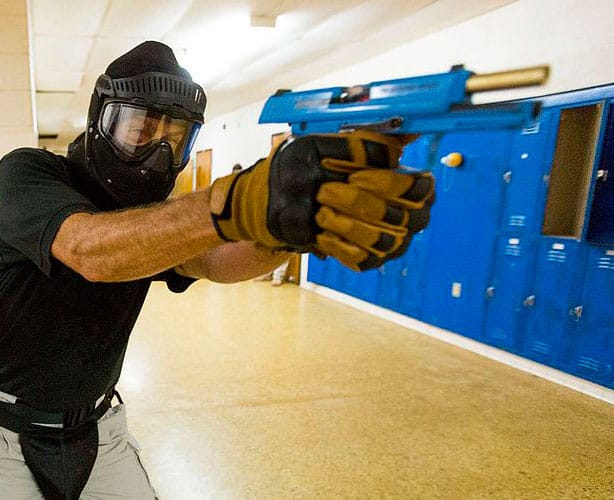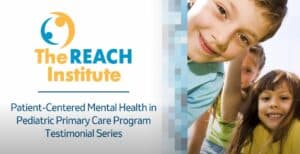
How Social Media is Impacting Teens
- May 10, 2025
- The REACH Institute
- Anxiety, Child mental health, Depression, High-risk children & youth, Parents, Patient communication
The most important question that we can ask teens isn’t if they use social media, it’s how. Just last May, the Surgeon General’s advisory on social media use in youth exposed some shocking statistics: Among 13 to 17-year-olds, up to 95% use social media, with 35% saying they use social media “almost constantly.”

Untangling ADHD and Anxiety as Comorbidities
- June 25, 2024
- The REACH Institute
- ADHD, Anxiety, Assessment & screening, Child mental health
“ADHD and anxiety presenting together is very common in children and adolescents. But it can be difficult to discern which is the primary condition and which to treat first,” explains Kari Overstreet, DNP, APRN, CPNP-PC, PMHS, a pediatric nurse practitioner focused on child psychiatry and a Patient-Centered Mental Health in Pediatric Primary Care (PPP) faculty…

Responding to the Alarming Rise of Depression in Adolescent Girls
- May 18, 2023
- The REACH Institute
- Anxiety, Assessment & screening, Child mental health, Depression, High-risk children & youth, Suicide
Gain a deeper understanding of the challenges faced by adolescent girls and the proactive steps clinicians can take to support them.

Supporting mental health needs in rural areas
- April 20, 2023
- The REACH Institute
- ADHD, Anxiety, Child mental health, Depression, Eating disorders, High-risk children & youth, LGBTQIA, Parents, Patient communication, Pediatric primary care
Rural healthcare providers can be overwhelmed—and understaffed with specialists. Discover how REACH inspired Elizabeth Wallis, M.D., to build a community to support her patients.

Don’t panic about panic attacks
- February 24, 2023
- The REACH Institute
- Anxiety, Child mental health, Cognitive behavioral therapy
“The impairment from a panic attack doesn’t come from the episode itself,” said REACH faculty member James Wallace, MD. “It comes from the patient’s and family’s reaction.”

After you screen for anxiety, then what?
- October 24, 2022
- The REACH Institute
- Anxiety, Assessment & screening
As you’ve heard, the US Preventative Service Task Force (USPSTF) recently issued draft guidelines recommending that primary care providers (PCPs) screen all adults aged 19 to 64 for anxiety disorders. Guidelines recommending anxiety screening for children aged 8 to 18 were finalized last week. The question is, if the screener indicates that anxiety is an issue, then what do you do? Patty Gibson, MD, a psychiatrist on the REACH Adult Behavioral Health faculty, shared some basics from the course to answer the question.

IEP and 504 school accommodations for mental health needs
- July 12, 2022
- The REACH Institute
- ADHD, Anxiety, Child mental health Depression,
Children with mental health diagnoses may need special accommodations in order to succeed in school. Patients with attention-deficit hyperactivity disorder (ADHD) or autism come immediately to mind. However, children with depression and anxiety disorders may also struggle in the classroom.
Pediatric primary care providers (PCPs) and therapists can help families get the school accommodations their children need. Mark Wolraich, MD, REACH faculty member and retired professor of pediatrics at the University of Oklahoma Health Sciences Center, emphasizes that children are best served when professionals take a team approach to mental health care.
Overcoming anxiety about the news
- May 25, 2022
- The REACH Institute
- Anxiety, Child mental health Trauma,
In the wake of the Texas school shooting tragedy, your young patients–and their families–may be experiencing anxiety that can affect normal functioning. That anxiety can manifest in many ways, from reluctance to go to school to increased aggressive tendencies.
In fact, pediatric primary care providers (PCPs) have been observing the effects of news consumption on their young patients for years now. The spike in anxiety at the beginning of the Covid pandemic is another example. Families may be experiencing trauma as they watch scenes of devastation and displacement in Ukraine. Every act of terrorism or mass violence inspires more fear. The examples go on.
As your families’ trusted PCP, you can influence how patients and families deal with anxiety over recent events and the continuous barrage of bad news that characterizes today’s media culture.

Helping families deal with holiday stress
- November 17, 2021
- The REACH Institute
- Anxiety, Depression Parents,
“In some ways the holidays this year will be harder than last year for many people,” said Deborah Buccino, MD, pediatrician and REACH board member. “Earlier, we had pretty clear-cut rules about what you could and could not do safely. This year, we have a lot more gray areas.”

Alleviating coronavirus anxiety
- March 14, 2020
- The REACH Institute
- Anxiety Pediatric primary care,
We don’t have to tell you that virtually everyone feels anxious about the spread of COVID-19. An appropriate level of anxiety can be helpful if it inspires people to follow CDC recommendations on hygiene and social distancing. An unnecessary level of anxiety, however, can impair both mental and physical health. Many of your patients and families are suffering from unhealthy anxiety–whether they present with possible COVID-19 symptoms or come in for an unrelated complaint.

Helping patients deal with school shooter anxiety
- September 18, 2019
- The REACH Institute
- Anxiety, Child mental health Cognitive behavioral therapy,
According to the National Center for Education Statistics, 92% of public schools had formal active shooter plans in 2016, and 96% conducted lockdown drills. These measures are intended to keep children safe, but they may do as much harm as good. The title of a September 4 New York Times article sums it up: “When Active Shooter Drills Scare the Children They Hope to Protect.” We asked REACH faculty member Jasmine Reese, MD, MPH, about how students react to active shooter drills and what pediatric primary care providers (PCPs) can do. Dr. Reese is Director of the Adolescent and Young Adult Specialty Clinic at Johns Hopkins All Children’s Hospital in St. Petersburg, Florida. “We have yet to see data on whether these drills are causing more anxiety and other mental health issues among students,” said Dr. Reese. “But it seems clear in practice that they can either cause anxiety and depression or exacerbate existing issues.”
Categories
- ADHD
- Anti-racism
- Anxiety
- Assessment & screening
- Autism
- Child mental health
- Coding
- Cognitive behavioral therapy
- College transition
- Culturally responsive
- Depression
- Eating disorders
- Foster care
- Grief
- High-risk children & youth
- LGBTQIA
- Medication
- Parents
- Patient communication
- Pediatric primary care
- School refusal
- Sleep disorders
- Suicide
- Trauma
- Show All Categories
Register for courses
“The REACH Insitute Video Testimonial: Priya  ”
”
